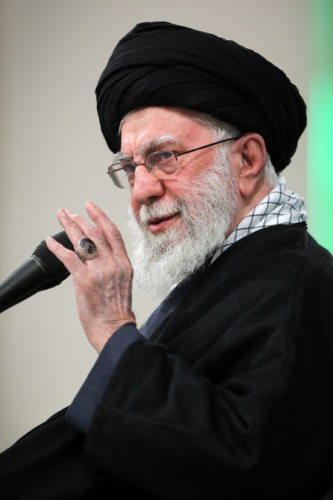By Kusum Lata Sawhney
Stereotypes abound when it comes to single kids. While they can be a little selfish and self-absorbed, they are also independent and high achievers.
Why does one decide to have only one child? Of course, there is no easy way to answer that question. Every decision is unique.
Shiela says that hers was personal and is something that many people cannot comprehend. “As a designer, I work from home, has flexible hours, so I could easily have devoted time to rear another child. But much as I adore my son, one is enough for me.”
Agrees Shalini, “It is about bringing up a child with love. So having a sibling just for your child does not make sense. A child should be wanted and not there to fill a need.”
Variety of reasons
Others have one child for economic and career reasons. Sashi has only one daughter and because she is a single mother she says it works very well for her. “I am exhausted at the end of the day and I don’t have to play the favorite game. My time and affection are solely hers.” The long hours do not seem to have affected the child. In this case, the extended family plays a large part.
Also there has been a shift in society. The “only child” was a rare phenomenon 30 years ago and they tended to be shy, over-protected and socially withdrawn. They were children of older or infertile couples when the average age for having a first child was in the 20s. Today, women are choosing to have children later, they can be unmarried, single and working. Some marry late. These children are as well balanced and socially adjusted as kids with siblings.
In a highly populous country like India, saying you have an “only” often seems a sacrilege. Says Renu, the mother of 24-year-old adopted Nidhi, a confident and assertive media person. “One is still met with disapproval and I am labeled selfish. By not giving my daughter siblings, I have deprived her of a normal life.”
Stereotypical ideas abound. Many say that only children are spoiled brats and are self- absorbed. But that is too simplistic. In fact, research suggests that only children are often high achievers, very motivated and successful. In his book, Born to Rebel, Frank Sulloway provides evidence that suggests that “first borns and ‘only’ children are more conscious, more socially dominant.”
There are some strong characteristics of an “only” child. They are very sure of themselves, they have a high sense of right and wrong, they mature quickly, become independent, some are highly imaginative and enjoy being on their own which does not mean they cannot interact socially when the need arises.
Crucial influence
According to 21-year-old Kien, “it’s not about one child or two; it’s about the child’s upbringing. What is of crucial importance is the kind of parenting one has.” Says Ali, himself an only child and another 21-year-old student. “A lot of it actually boils down to the kind of parents one has, the circumstances and environment of the child.”
Let us look at the “only” issue from the child’s point of view. For the “only” dinner is not about fun with siblings but is question time with parents. If they have access to their parents’ resources, they also have to do more homework; their parents are more critical, more ambitious for them because the focus is always on them. Says Vivek, a neurosurgeon and only child, “My father was extra tough with me because he didn’t want me to be spoilt.” Growing up, they are often taunted about being an only child, being selfish, unable to understand because they have no siblings.
It is true that they have a strong sense of entitlement, where they are always listened to and taken seriously. But that’s not spoiling…. its the way their life is because there is no one else. The child decides everything. So they do tend to think of themselves first.
They are used to being heard and tend to always want to dominate. The strong trait is there and because they are used to getting their own way with their parents, they think they can continue with friends. But that is not always the case. Like any other child, they must learn to adapt to a given situation, to share and to empathize with others. Many do.
Not all “only” feel that way. According to banker Vikram, an only child, he said growing up he had the most boring childhood. He never did anything with his parents. That is why when he got married he decided to have two children. “So they would not have to endure what I went through.” Likewise, says Vivek who also decided to have two children.
“Being an only child can be lonely and scary as you wonder what the future holds,” says Rajesh. Adds Vani, Rajesh’s wife and also an only child, “With siblings you have someone to share.” Festivities and family functions seem to be the time when an only child wishes she had siblings. But in the social and gregarious world of today, it is not something that onlys see as insurmountable, as most have a large social network.
We might think a single child would like other siblings to gang up on their parents, or share time with but most do not share that feeling. “There are many times when I wish my parents would understand my feelings or I had an older sibling to confide in but the feeling does not stay for long,” says Sudip. Susan Newman, social psychologist and author of Parenting an Only Child, says that “only children are no different from their peers.”
Lost love
Sometimes outside issues destroy family ties. For every adult who adores his/her brothers and sisters, there is another who is jealous and bitter. Inheritance fights mar relationships. Says Jai, who has an older brother, “We grew up as a happy family but now both my brother and I are fighting for my parents’ property. What’s the point of all this? I wish I didn’t have a brother and there would be no ugliness.”
One fact does seem to stand out - the only child is the center of all the attention but he has also to live up to all the expectations and that can be hard. An only child also has strong emotions about his parents. Says Ayaan, “I definitely don’t miss out, I am happy to have just my parents.” But he agrees that his parents interfere a lot. “My mother is over protective about me because she keeps saying there is only me!”
Dilip agrees. “I am close to my parents and enjoy doing stuff with them but they do seem to worry a lot.” He has stronger emotional ties with his parents because “they depend on each other exclusively.”
And one must not forget that although an only child may not have siblings, all children have to adapt to live with others whether it is their parents or their friends in the classroom. And most importantly — they must learn to share.
The way a child is seems to depend a lot on the parents. Undoubtedly, all children are loved but if they are temperamental, bossy and ill-mannered it’s not simply because they are an only child, but because their parents didn’t spank them when they should have!












